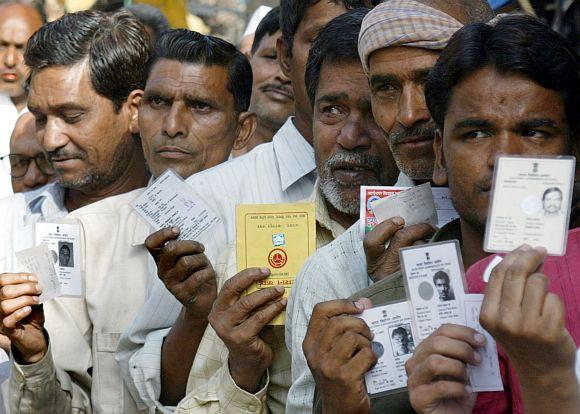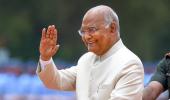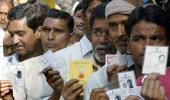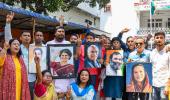Holding simultaneous elections to Lok Sabha and state assemblies would need at least five constitutional amendments and a large number of additional EVMs and paper-trail machines costing "thousands of crores of rupees", but will yield a huge long-term saving to the public exchequer, officials said on Friday.

A parliamentary panel had examined the issue of simultaneous elections in consultation with various stakeholders, including the Election Commission.
The committee made certain recommendations in this regard, the officials said.
The matter now stands referred to the Law Commission for further examination to work out a "practicable road map and framework" for simultaneous elections, they said.
Simultaneous elections, the officials noted, would result in huge savings for the public exchequer and avoid replication of effort on the part of administrative, and law and order machinery in holding repeated elections. It would bring considerable savings to political parties and candidates in their election campaigns.
Asynchronous Lok Sabha and legislative assembly elections (including by-elections) result in prolonged enforcement of the Model Code of Conduct with its concomitant adverse impact on developmental and welfare programmes, the officials noted.
They also said simultaneous polls would require amendments in at least five articles of the Constitution -- Article 83 relating to the duration of Houses of Parliament, Article 85 relating to dissolution of Lok Sabha by the President, Article 172 relating to the duration of the state legislatures, Article 174 relating to dissolution of the state legislatures, and Article 356 relating to the imposition of President's Rule in states.
A consensus of all political parties is also required keeping in mind the federal structure of India's system of governance.
Besides, it is imperative that the consensus of all state governments is obtained.
It would also require an additional number of electronic voting machines (EVMs) and VVPATs (paper trail machines), which would cost "thousands of crores of rupees".
With the life of a machine only 15 years, this would imply that a machine would be used for about three or four times in its life span. They need to be replaced every 15 years.
Additional polling personnel and security forces would also be needed to hold the massive democratic exercise.
The department-related Parliamentary Standing Committee on Personnel, Public Grievances, Law and Justice in its 79th report had highlighted that in South Africa, elections to national as well as provincial legislatures are held simultaneously for five years and municipal elections are held two years later.
In Sweden, elections to national legislature (riksdag) and provincial legislature/county council (landsting) and local bodies/municipal assemblies (kommunfullmaktige) are held on a fixed date -- second Sunday in September for four years.
In the UK, the term of parliament is governed by the Fixed-term Parliament Act, 2011.










